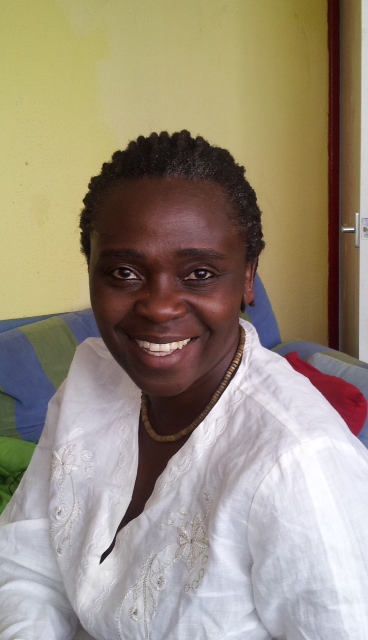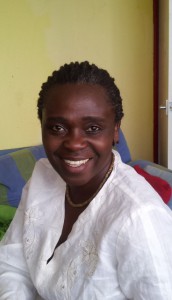- What inspires your writing?
Tiimwa, I love to tell stories. I like to share ideas, to question things, to suggest but mostly to have a conversation about our world. As you can imagine, I am opinionated and there is no other way of throwing my opinions around safely except through story telling. As a child I knew about London and the British, New York and the Americans, I knew the Ibo in Nigeria, The Gikuyu in Kenya and the Zulu in South Africa – as for the West, it was not just the stories I read but the films as well. But there was nothing much about Kampala or Uganda. Except Idi Amin. I wanted the world to know about Uganda the way I knew about those worlds, not to say that we are good but to say we are both beautiful and ugly, we are full of contradictions, we can be silly, sometimes just plain stupid but this is what makes us human.
- At what point did you realise that you wanted to be a writer?
It took me a long time to realise this. In fact it is quite recent, in 2003 when I finished my M.A in creative writing and my supervisor said I was really good. But it was when my novel was rejected that I set out to prove it to myself that I could write. Then I got hooked. So for me it started inadvertently. I am not one of those writers who knew from an early age that they wanted to write. I wanted to be a lawyer but I ended up as a teacher – which I enjoyed so much that I wondered why I ever wanted to be a lawyer. I first wrote scripts for school play competitions, then for the church I belonged to. Then one day my boss, the headmaster of the school where I taught, told me that I should write and tell the world about Uganda. I now imagine that his idea of the world was mainly the West. That there was a lot of misinformation, misrepresentation and misunderstanding about Africa in the world. So I started with that huge, grand idea of putting the record straight. But of course, along the way I realised how small and inconsequential I was and how I could not tell the world about Africa. I also realised that Africa did not really care that the world had misunderstood it. I suspected that perhaps the world misunderstood Africa willfully and it does not want to see Africa in any other way. So I started to write what I wished. Thank God I did not do law at university. Teaching, especially English language and Literature in English as I did, was quite useful.
- To what extent do you think gender plays a role in publishing opportunities between men and women?
That is a difficult one Timwa now. More women are getting published worldwide but I am not sure of what is going on in the individual countries. But focusing on Africa, the thing is that recently there has been an upsurge of African women writers which is fantastic. I think the problem is before publishing level – at levels like the girl child’s education, the lack or moral and cultural investment in women, the work load of the wife and mother, the confidence of a woman to put pen to paper and belief in herself that what she has to say is worth the attention of the world. The idea that marriage, wifehood and motherhood are the measure of feminine success. Those are the killer stages/ elements for women writers.
- Who are three of your favourite writers?
At the moment I love Noviolet Bulawayo. I love Adichie’s novels, especially the early ones. Toni Morrison, the African American woman writer is my favourite writer ever. I think she is the best of all time because I loved all her novels. I love Yvonne Vera. I love Helen Oyeyemi. Of course there is Achebe, his Arrow of God. Binyavanga is also still fresh in my mind. Sometimes it is hard to name all of them.
- What message would you give to aspiring writers?
I always say to new writers that read more than you write. Work on your reading skills because how you read will determine how you write – you must read yourself and this is when you needed your reading skills most. Read people you admire. Don’t write in isolation. Listen to all critique, but mostly to the negative one – in my experience there is always some truth there. People tend to want to please a writer so they tell you all these wonderful things. Negative critique hurts but don’t throw it away. If you cannot take it give up writing entirely because readers can be brutal. Don’t write to make money or to become a celebrity. You might get disappointed. At the same time, writing is tough, you get knocked down so many times, but you need to be able get up, dust up and start again until you get it right.
- How long did it take to write the Kintu saga?
This is going to shock you Tiimwa, I started that novel in 2003 and completed in 2013. Actual writing took 3-4 years really but all that other time I was thinking about it. Thinking about your project, sometimes talking about it to your friends, family and colleagues is also critical. So it took me a long time. The one I am working on now, I started it in 1998! Completed it 2002. It was rejected, I put it away, started Kintu and competed it. Now I am back on it. I hope to finish it next year. If it gets published people will say, how long did it take? How slow!
- Sometimes people talk about the challenges between balancing teaching and writing. How do you balance time for teaching and time for writing?
I am telling you, Timwa, right now I teach 4 hours a week on Fridays, that is why I left the conference early. My teaching contract tends to last from October to May. That has freed a lot of time for writing for me and I am doing a lot of it now. However, my friends who finished their PhDs and got teaching jobs are struggling to write. Teaching is eating up all the time both at university and at home. By the time they finish the administrative work, the reading, the marking and preparing lectures and seminars, they are too exhausted to write. But they have one thing I don’t have and that is money. So I guess it is hard balancing those two. In many cases, writing suffers.



